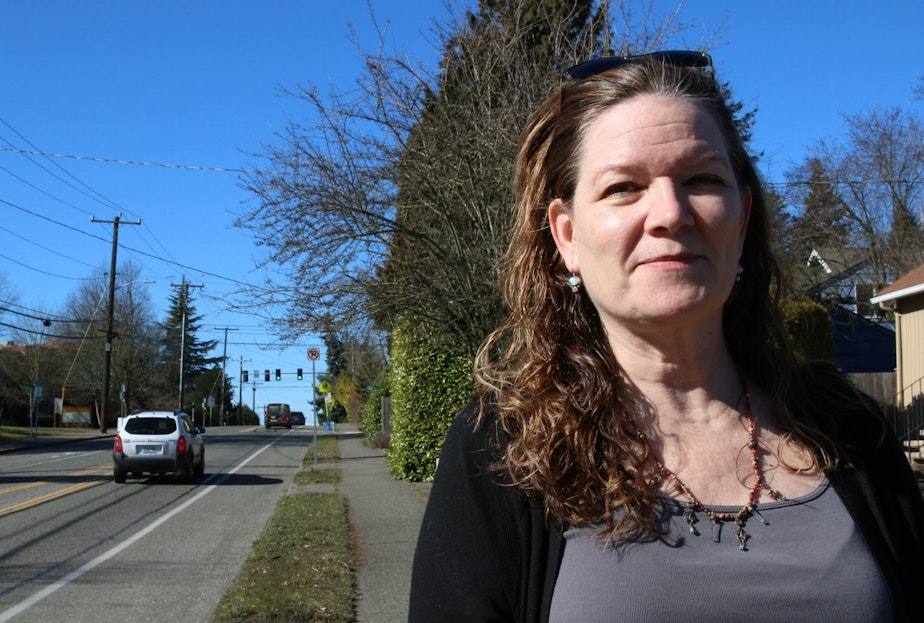Pedestrian deaths are rising, but not in Seattle. Here's why

Across the U.S., pedestrian fatalities are increasing, according to a recent report.
That's often due to distracted drivers and pedestrians looking at their phones. Some are high or drunk, and increasingly, they're driving heavy, taller SUVs that strike victims at chest height, where they can do more harm.
But Seattle has bucked the trend, thanks in part to strategies aimed at calming traffic and increasing safety.
Dr. Beth Ebel is a pediatrician at the University of Washington Medicine’s Harborview Medical Center. One afternoon in 2013, when she was on call, a whole family was hit by a drunk driver near Eckstein Middle School in the Wedgwood neighborhood of northeast Seattle.
Ebel, who lives near Eckstein, started looking into the safety of the Northeast 75th Street, where the crash happened.
"It turned out there had been many kids who had been hit by cars around the school that the principal had heard of," Ebel said.
The street had become more like a highway over time, with four lanes of traffic, and less like a neighborhood street that kids could cross safely on the way to school.
"When you have a big wide road, people go faster on that road," Ebel said.
Ebel said the city responded by putting in a traffic camera, narrowing the vehicle lanes and reducing the distance pedestrians have to cross. They reduced the road to two lanes from four, and added a central turn lane and a bike lane. And they decreased the wait time at a crosswalk signal, reducing the temptation for pedestrians to jaywalk.
The improvements on Northeast 75th Street are part of the city's larger goal to eliminate pedestrian deaths altogether. Ebel pointed to scientific studies showing that this works.
On Tuesday, the Seattle Department of Transportation will tell the City Council how "Vision Zero" is doing.
"Every big problem requires many steps to make progress," Ebel said. She said those small steps, across the city, appear to have helped.
“We should feel a glimmer of positive energy," she said. "This is the right direction.”




